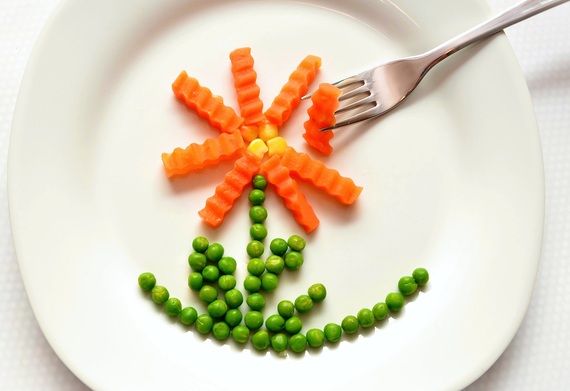Why do I reach for the cake instead of the kale?
I love all things food and nutritional science.
But even though tweaking a diet is part of my work with clients food is half of the equation. Really. If it were the entire equation I would give you a meal plan, you would follow it, feel great, problem solved.
But we don't just follow a diet like we don't just do a thousand other things that are supposed to be good for us.
Is the problem lack of willpower? Not really. Lack of willpower and self sabotage get thrown around as the cause for all diet mishaps and slip backs, when our relationship with food is infinitely more complex than a bunch a calories thrown together.
Calories and nutrients are important, but if that's your only resource you'll be sitting on a 2 legged chair.
Here's why:
1. Our relationship with food is intimate, personal and emotional.
From the time you pop out of the womb food is one of your first experiences of comfort, pleasure and safety. To baby you, food is comfort.
Think of it. Doesn't it put emotional eating into perspective?
Reaching out for food when you feel anxious or depressed is a natural behavior that doesn't get better if you try to tame it like a wild creature, but it begins to transform when you understand it. As do many of our "slip backs".
2. Not all "hungers" are made equal.
We can be hungry for actual food, intellectual stimulation, a fulfilling relationship, a meaningful life.
But as this study suggests, the brain doesn't always translate a physical, mental or emotional need into its corresponding behavior.
If we are in need of connection the body screams "Food!". Not hug, talk, bond.
Feeding hunger can be as down to earth as improving the quality of your meals, or acknowledging where in life you need to be fed.
3. Individuality
This is an old adage, you know it, I know it. But we still go on autopilot.
Of course there are generalizations, but there is a point where we need to get personal and look beyond averages and what's general. Not only is your biology unique, your lifestyle belongs only to you and so does your past history, your personal relationship with food and your "emotional metabolism".
Eating, feeling and living interpenetrate one another. More than the food we eat, it's about how we digest it. More than the emotions we feel, it's about how we metabolize them. More than the life we live, it's about how we live it.
4. Life is messy
We can try to control it, compartmentalize it, make it look perfect. Life too has its own agenda and will change, evolve and sometimes get chaotic. Just like the way we eat.
A diet is as static as life - it will change because it has to.
Does this mean we should all throw our hands in the air and feel hopeless? No. It means seeing the way you eat as a two way street where, more than sticking to rules, you check in with yourself and listen for feedback.
Think of it as a partnership where you get to dance with food and your body.
Besides, there is a lot of nutritional controversy and a fair amount of critical thinking also comes in handy.
Do you resonate with any of the points above? Which ones?
Catarina Catarino coaches, teaches and host retreats in Pilates, Qigong, Transformational Nutrition and Eating Psychology. Connect with her at catarinacatarino.com.

